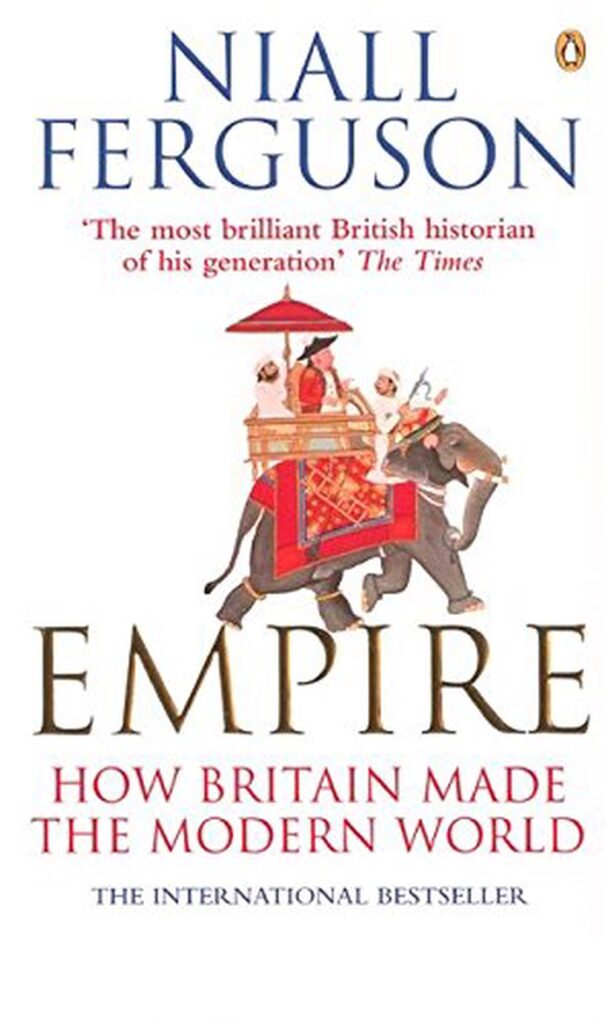Sharing my learnings from the book, Empire by Niall Ferguson
Empire by Niall Ferguson
This astoundingly successful, superbly reviewed book vividly recreates the excitement, brutality and adventure of the British Empire. Ferguson’s most revolutionary and popular work, EMPIRE is a major reinterpretation of the British Empire as one of the world’s greatest modernising forces. It shows on a vast canvas how the British Empire in the 19th Century spearheaded real globalisation with steampower, telegraphs, guns, engineers, missionaries and millions of settlers.

- according to historian Niall Ferguson, the creation of the British Empire also came with some beneficial advances. Intercontinental communications as well as the spread of democracy and life-saving medications are just a few of the good things.
- For a while, England played the role of disruptor. It was highly aware of the gains and riches that Spain was acquiring through overseas conquest, but the early strategy was less about colonizing areas for itself and more about stealing Spain’s booty.
- It was a transition from piracy to political power that would change the world forever
- The British Empire grew through the demands of commerce and consumerism.
- The Seven Years’ War, which began in 1756, involved all the major European powers, including Prussia, Austria, Russia, and Spain. Yet despite all these participants, the primary question of the war was, simply, would France or Britain control the world? In the end, it was a huge victory for Britain.
- Migration and the slave trade populated the British Empire.
- After a war that found many British-born people killing one another, Britain recognized the independence of the United States. The British learned a painful lesson from the loss of their North American colonies. The thing they denied the Americans, self-government, was something it would grant to many of their other territories, including Canada, Australia, New Zealand, and South Africa. This was a lesson learned, and it was one that could have drastic consequences on the indigenous populations.
- In the Victorian Era, the colonies saw an influx of Christian missionaries.
- In Africa, the Empire expanded through more commercial desires.
- The nineteenth century ended with what is known as the Scramble for Africa. Germany, France, Belgium, Portugal, Spain, and Italy were all involved to one extent or another.
- Already in negotiations over African territories, the Germans had been playing the British and French against each other. And Germany had been setting the stage for the Great War for some time. When the war finally came, the Empire was key. Indeed, it was a war that wouldn’t have been winnable if not for the Empire. One-third of the troops fighting on behalf of Britain were from the colonies. Indians, Australians, and New Zealanders were especially brave and devoted fighters for the British cause.
- While Great Britain gained more territories at the end of World War I, the financial drain caused by the war would prove to be the beginning of the end for the British Empire.
- The Empire was hurting Britain. Britain needed to invest in rebuilding its defenses, and modernizing its military. It didn’t, and in World War II, it nearly cost Britain everything.
- In the aftermath of WWII, the US emerged as the dominant world power. And as a globalized economy strengthened, new questions about empire-building emerged. Britain’s history revealed both the good and bad that can occur.


Leave a Reply